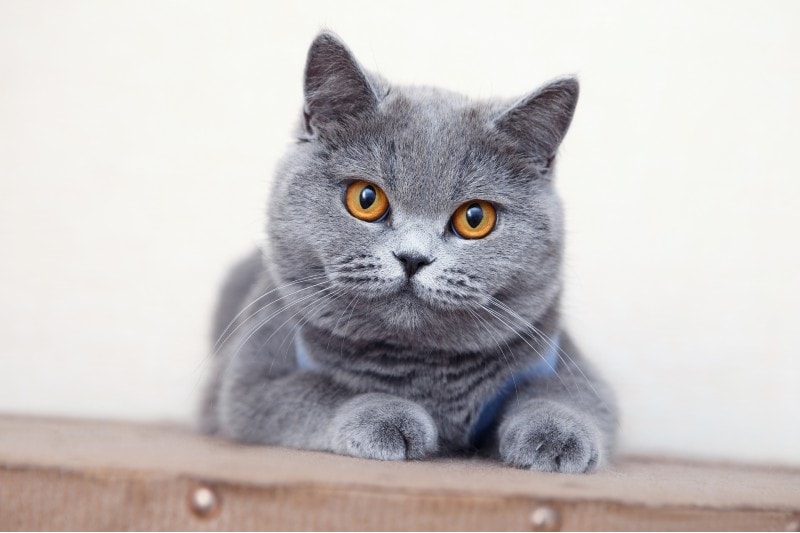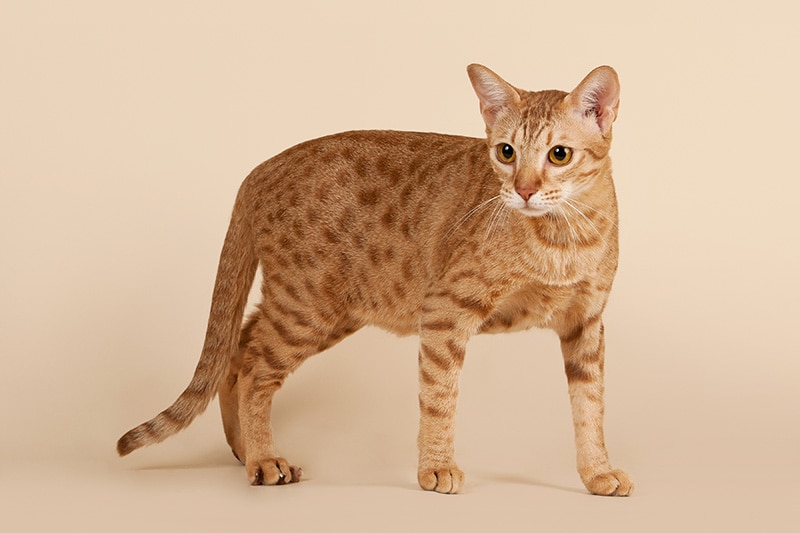16 Common Causes of Sudden Death in Cats: Vet-Reviewed Facts & Advice

Updated on
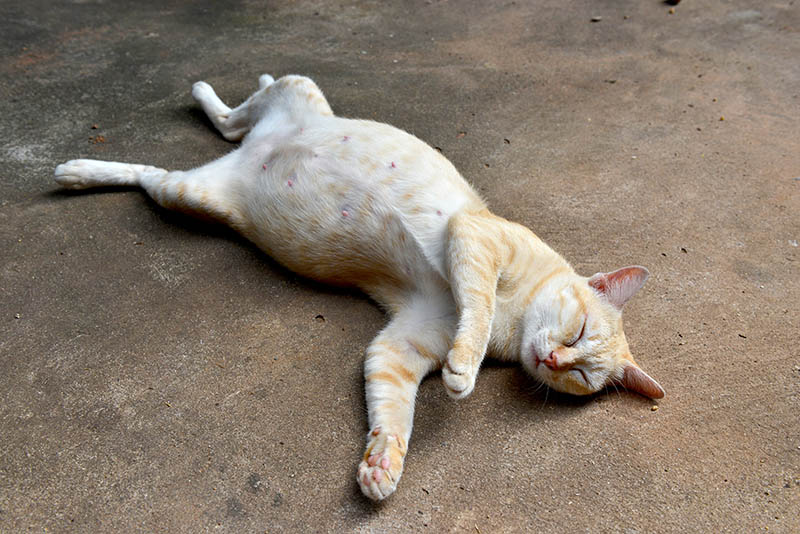
There’s nothing more devastating to pet owners than losing a beloved companion, and it is even more true if the loss is sudden. Losing a pet can be shocking and catapult owners into grief, often leaving them wondering why and how their pet died and whether there was anything they could have done to prevent it.
Learning about the possible causes of your cat’s death can help you understand what happened and provide a small comfort; this is especially true for owners who’ve suddenly lost kittens and healthy young cats. This list will identify and discuss some of the most common causes of sudden death in cats, to help owners look out for their companions.
The 16 Most Common Causes of Sudden Death in Cats
1. Cardiomyopathy (Heart Disease)
Cardiomyopathy, or heart disease, is one of the most common causes of sudden feline death. Cardiomyopathy is usually a hereditary disorder that is more common in Maine Coon cats and Persians but can also occur in mixed breeds. Young, healthy cats are more likely to show sudden death without symptoms. As for cats that die from cardiomyopathy, death is often the first symptom.
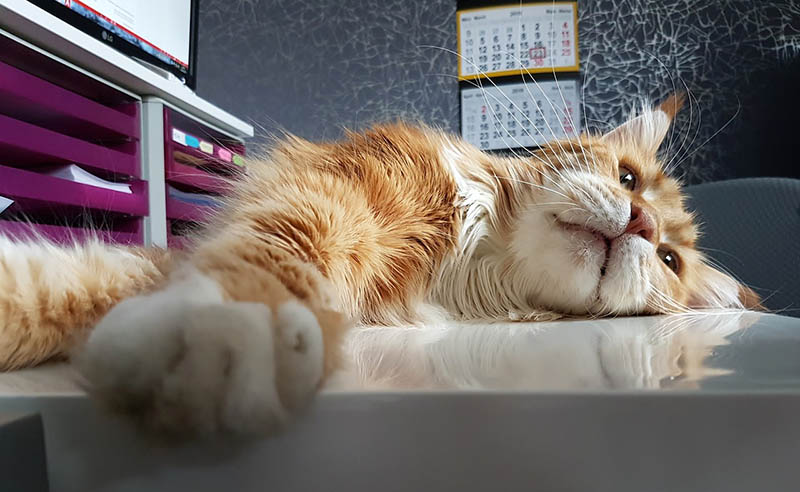
2. Trauma
Trauma is caused by accidents or fights and can cause a lot of damage, including ruptured organs, broken bones, or worse, which can cause sudden death. Extensive trauma can be caused by animal attacks, being hit by a car, or by high-rise syndrome (when a cat falls from a height).
Internal bleeding and organ failure commonly occur with trauma, which can easily be missed, particularly as most cats instinctively hide injuries from their owners.
3. Blood Clot
Blood clots (thromboembolism) can form in different vessels in the body and end up in any area. Various symptoms occur depending on where the blood clot lands, such as paralysis, breathing issues, and sudden death, particularly if a clot lands in the lungs, brain, or hind legs.
Blood clots can be caused by several issues, including clotting disorders or enlargement of the left atrium (a heart chamber) in heart disease.
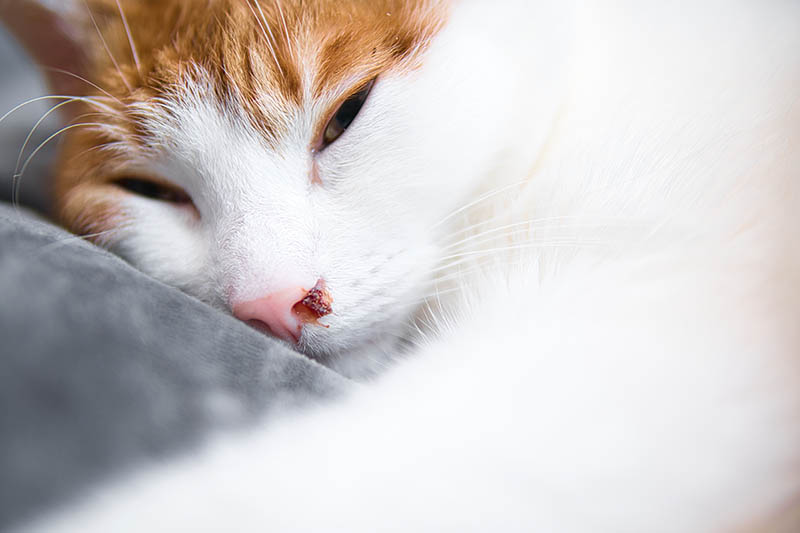
4. Heart Failure
When the heart muscle fails, life-threatening symptoms occur, such as ascites (build-up of fluid in the abdominal cavity) or fluid collecting in the lungs, known as pulmonary edema.
Unfortunately, because cats are so good at hiding symptoms, many owners may not notice until it is too late. Open mouth panting due to lack of oxygen and shortness of breath are also symptoms of heart failure to look out for, and sometimes coughing.
5. Diabetes and Ketoacidosis
Uncontrolled blood sugar can cause sudden death in cats, both too low and too high. Diabetes can cause high blood sugar if unchecked, leading to diabetic ketoacidosis, a life-threatening condition that can cause:
- Weakness
- Vomiting
- Coma
- Death
Low blood glucose (hypoglycemia) can also be caused by diabetes and can cause seizures, unconsciousness, and death. Hypoglycemia is a common cause of death in very young kittens.
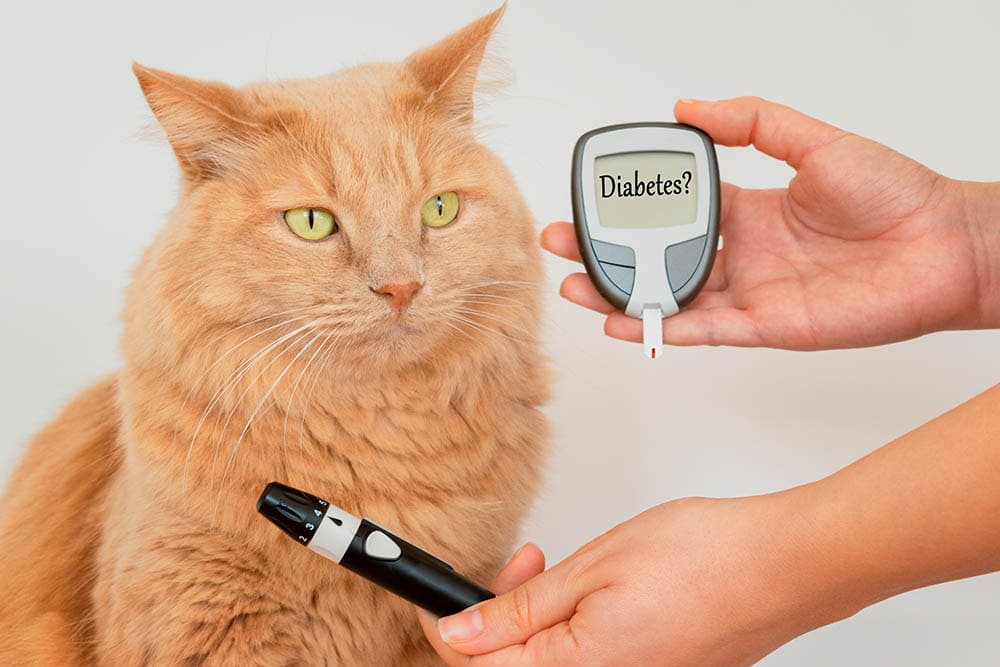
6. Stroke (Cerebrovascular Accidents)
Cats can suffer from a cerebral vascular accident (CVA or stroke) just as people can, with similar symptoms occurring. Brain death occurs as a lack of oxygen-rich blood reaches the brain during these CVAs, and the symptoms usually come on very quickly, meaning sudden death can occur.
Signs of CVA can include:
- Coordination problems
- Weakness on one side
- Falling over
- Paralysis
- Seizures
The prognosis is better if a stroke is caught early, but it can be a challenging recovery.
7. Sepsis
Sepsis (blood poisoning) is a devastating full-body infection with a 20% to 68% mortality rate, even with rapid and aggressive treatment. Sepsis is caused either by primary infection or trauma, such as the rupturing of the intestines when bacteria and feces spread into the body’s cavities.
The infection spreads to the blood and affects the entire body; septic shock can further decrease the survival rate. Because of how swiftly sepsis can worsen, sudden death in cats can occur.
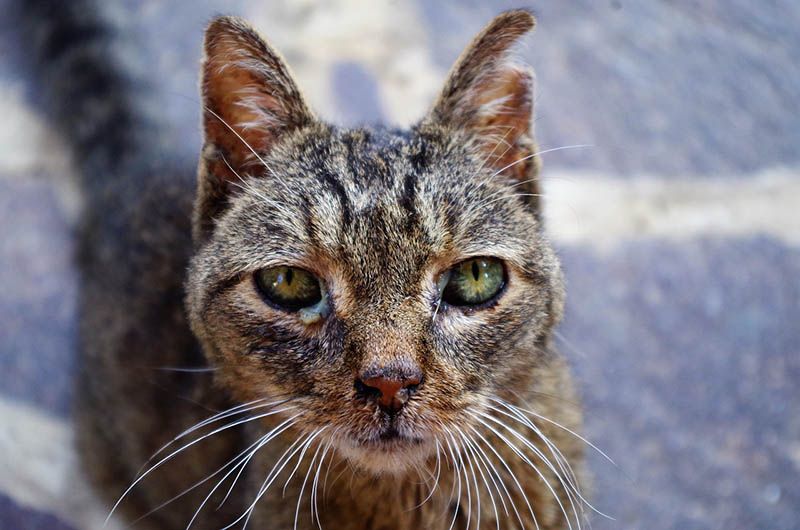
8. Shock
Shock has several types, including hypovolemic shock caused by blood loss, septic shock, and even allergic reactions (anaphylactic shock). Hypovolemic shock causes low blood pressure and death quickly if it’s not treated rapidly, and the first signs of shock in cats can be subtle.
Symptoms of shock in cats include:
- Pale gums
- Unconsciousness
- A rapid, weak (thready) pulse
- Shallow breathing
- Seizures
Treatment for shock includes supporting the body with fluids and treating the root cause of the shock.
9. Urinary Obstruction
Urinary obstruction (or blocked bladder) affects male cats more severely than females and more often. Because it can be caused by infection, inflammation, or stones blocking the tubes to and from the bladder, blocked bladders can quickly turn fatal.
If a cat can’t urinate, toxins and waste products build up in the blood. The toxins travel around the body and can physically damage organs in the urinary system, such as the bladder and kidneys. Blocked bladders, or any urinary obstruction, usually show symptoms beforehand, but if a bladder obstruction isn’t caught in time, it can cause sudden death.
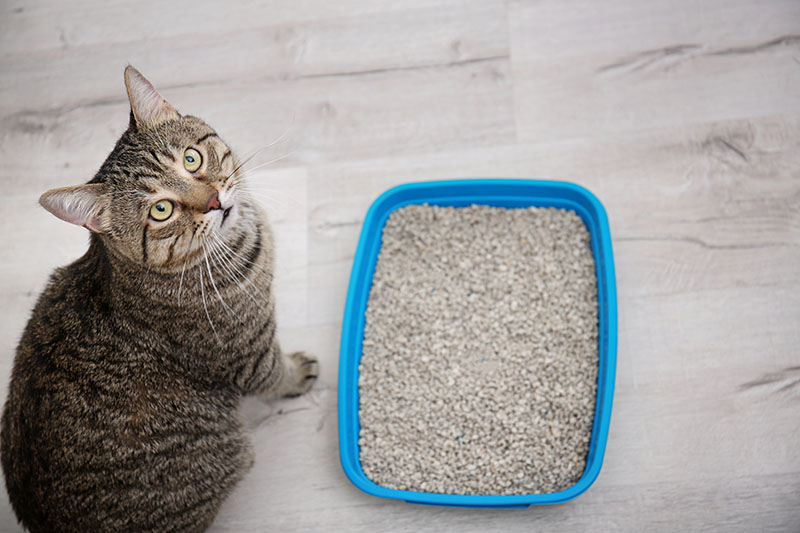
10. Choking
The obstruction of the airway (choking) is caused when something blocks the trachea. Inhaled food can cause choking in cats just as it causes choking in humans, and sudden death is caused by the blocked airway not allowing air (and oxygen) into the lungs, starving the brain.
Knowing basic feline first aid is important since knowing what to do when your cat is choking can save its life. It can take as little as a few minutes for a cat to die from oxygen starvation due to choking.
11. Toxins and Poisoning
Ingestion of toxins and poisons such as lily plants or antifreeze (particularly dangerous to cats as they like the taste) is one of the leading causes of sudden death in cats.
Depending on what’s ingested, death is caused by a number of causes, such as:
- Nephrotoxicity from eating lilies, causing acute kidney failure
- Internal bleeding from eating certain poisons, like rat poison
- Kidney and organ failure caused by ingesting antifreeze
Rapid treatment and identifying the substance eaten are critical to saving a cat’s life. If they have ingested a poison or toxin, time is important, but it can be hard to identify a cat that’s been poisoned, as cats like to hide away if they’re not feeling well. So many cats, unfortunately, die before their owners discover them.

12. Bitten by a Venomous Animal
Venomous animal bites are more or less common, depending on where you live. Snakes such as rattlesnakes, copperheads, and cottonmouth rattlesnakes are endemic to America and can cause rapid death if a cat is bitten.
A bite could be fatal to a cat even if the bite itself isn’t envenomated (injected with venom). A severe bite to the face or the throat can cause extreme swelling, which can block the cat’s airways.
Different symptoms for different types of venom can occur. For example, neurotoxic venom can cause seizures and paralysis; hemotoxic venom can cause internal and external bleeding. A cat bitten by a very venomous animal will quickly die without anti-venom.
13. Feline Asthma
Feline asthma can be acute or chronic. If acute, the condition causes sudden death if not treated in time, as asthma is the closure of the airways. Feline asthma is reversible with treatment but can quickly become fatal.
Veterinarians can treat asthma with a nebulizer and inhaled bronchodilators. Sometimes these are used consistently to prevent asthma attacks from occurring in cats.
14. Acute Kidney Failure
Acute renal (kidney) failure in cats has several causes, such as toxin ingestion, physical trauma, or a blocked urethra. When their kidneys suddenly fail, it’s common for cats to go into shock and quickly become critical. Acute kidney failure is often discovered too late. Symptoms of kidney failure in cats include:
- Vomiting and diarrhea (with or without blood)
- Seizures
- Strange smelling breath
- Collapse and coma

15. Foreign Body Ingestion
If a cat eats something that it can’t digest, it can get stuck in the digestive tract and cause problems, such as:
- Necrosis (tissue death) of the intestines
- Trauma to organs
- Intussusception (telescoping of the intestines into themselves)
- Blockages
Swallowed objects can even pierce the organs if the item swallowed is sharp, like a needle. Linear foreign bodies are more common in cats and quickly become fatal as the long nature of the objects eaten (such as string) quickly causes significant damage.
16. Dystocia
Dystocia (or difficult birth) can affect both the birthing queen and her kittens and can cause sudden death by trauma, lack of oxygenated blood, or even infection. While a queen would usually show some signs of distress during dystocia, her kittens may seem to die very suddenly, whether during the difficult birth or shortly afterward. Causes of death can include:
- Being stuck in the birth canal (kitten)
- Oxygen starvation (kitten)
- Retained fetus (queen)
- Brain damage due to trauma (kitten)
- Hemorrhage (queen and kitten)
- Internal injuries (queen)
- Shock (queen and kitten)
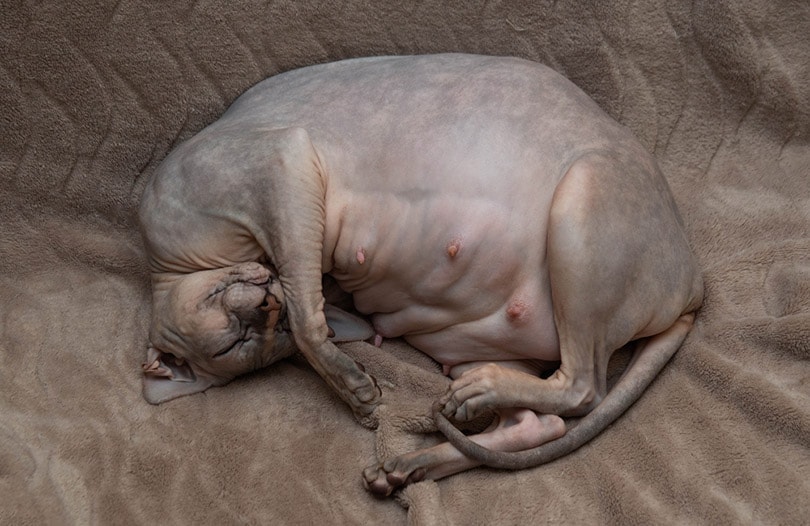
Conclusion
It’s very upsetting to lose your companion suddenly, and a lot of hurt and grief occurs before you begin to heal. Knowing what can cause sudden death in cats can offer reassurance and help owners stay alert and watch out for any symptoms they’re concerned about.
If you’re concerned your cat may be exhibiting any of the symptoms mentioned in this list, take them to a veterinarian immediately. If you’ve lost a feline friend and are looking for some answers, we hope this list has given you some comfort.
Featured Image Credit: PHONSIN AUPPACHAI, Shutterstock



